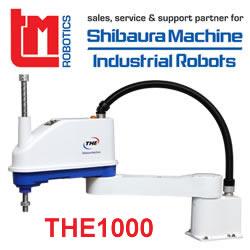RISE: Robots in Service of the Environment to Solve Large-Scale Environmental Challenges With Robots
Non-Profit's First Project is an Undersea Robot to Slow Invasive Lionfish Destruction
BOSTON, March 28, 2017 /PRNewswire-USNewswire/ -- There is boundless potential for robotic technology to address environmental catastrophes. Recognizing this, Colin Angle, chairman, CEO and founder of iRobot and Erika Angle, CEO of Science From Scientists have founded Robots in Service of the Environment (RISE). RISE is an independent non-profit organization, that is focused on developing robots to solve environmental problems. Started with initial funding from the Anthropocene Institute, Schmidt Marine Technology Partners, and the Angle Family, the non-profit's first initiative is to develop a undersea robot to slow the destruction caused by lionfish, an invasive species drastically reducing biodiversity and coral reef health in all warm waters of the western Atlantic.
"As an extension of human efforts, robots have tremendous potential to solve large scale environmental problems by going and doing what a person cannot," said Colin Angle, co-founder and executive chairman of RISE. "Whether it is helping to clean up a nuclear plant disaster, remove hazardous pollutants, or slow the expansion of an invasive species, robots play a critical role in mitigating manmade environmental problems. RISE was founded to create economically sustainable and scalable robotic solutions with this purpose."
On April 19, 2017 at the 11th Hour Racing #EatLionfish Chefs' Throwdown at the National Museum of Bermuda, RISE will unveil a functional prototype of an affordable robot that will enable the mass capture of lionfish below depths reachable by sport divers, where the population expands unchecked. At the same time, RISE will launch a crowdfunding campaign to support the final development of the robot as well as resources to bring it to market in scale. Additional information on the robot and the crowdfunding campaign is available at www.robotsise.com.
"Built by a team of volunteers made up of skilled roboticists, scientists and business people, all passionate about the environment, rapid progress has been made on the first prototypes of a robotic solution to one of the top threats to the Atlantic marine ecosystem," said John Rizzi, Executive Director of RISE. "We are thrilled to now formally announce RISE to the public and soon move to our next phase of organizational growth including production of our first low cost robots effectively helping the environment."
Since their accidental introduction over 25 years ago, lionfish have relentlessly invaded the western Atlantic, devouring over 100 different species of reef fish and crustaceans around Florida, throughout the Caribbean and Bermuda. An indiscriminate and voracious predator, one lionfish can reduce the fish biomass on a reef by 80 percent in just one month. It is now considered by marine biologists as a top threat to the Atlantic marine ecosystem along with climate change and ocean acidification.
"The Anthropocene Institute is working on a broad spectrum of environmental issues. Lionfish caught our eye because they are particularly damaging; they are voracious predators, devastating fisheries and the environment up and down North and South America; they are found very deep below safe depths for diving, and reproduce quickly," said Barbara Page, Co-founder and VP Operations of the Anthropocene Institute. "Robots are ideal for tasks that are hazardous for humans. RISE has the proven expertise to design and mass produce robots and we are fans of their approach."
Hand in hand with solving environmental challenges is an educational commitment focused on raising awareness and understanding of these same challenges. Leveraging Science from Scientists, RISE will create and implement educational outreach programs to expand the understanding of environmental challenges by local communities, how technology can help mitigate these challenges, and to stimulate and support STEM education and interest for young people in those communities.
11th Hour Racing #EatLionfish Chefs' Throwdown
Developed in collaboration with the British America's Cup Team Land Rover BAR, 11th Hour Racing #EatLionfish Chefs' Throwdown was created to raise awareness about the environmental threat posed by lionfish, an invasive species impacting the coastal waters of Bermuda, the Caribbean and the Western Atlantic. The Throwdown will feature six celebrity chefs representing the six nations and teams competing in the America's Cup - with Rob Ruiz as executive chef, they will serve up lionfish delicacies, a sustainable and delectable seafood choice.
About RISE - Robots in Service of the Environment
Founded by roboticist, environmentalists and scientists, Robots in Service of the Environment (RISE) is a non-profit organization focused on developing robot technology to solve environmental problems. Established in the fall of 2015, the non-profit's first project is to develop an undersea robot to slow the destruction caused by the lionfish, an invasive species that is drastically reducing biodiversity and coral reef health in all warm waters of the western Atlantic. By combining technology development with mass manufacturing techniques, RISE offers a unique set of capabilities to solve some of the world's most challenging environmental problems on a massive scale.
RISE Social Media
For more information about RISE and the launch of the lionfish undersea robot, please visit http://www.robotsise.com/; on Twitter @robotsise and Facebook at https://www.facebook.com/RobotsISE/.
Featured Product

